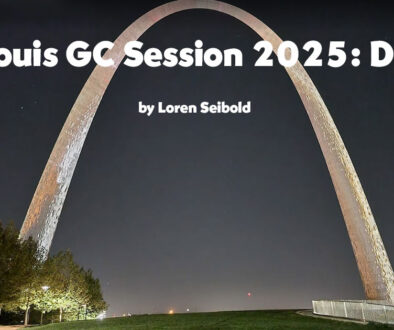“Let Us” Salad
by Debbonnaire Kovacs
Hebrews 10:19-25
Therefore, brethren, since we have confidence to enter the holy place by the blood of Jesus, by a new and living way which He inaugurated for us through the veil, that is, His flesh, and since we have a great priest over the house of God, let us draw near with a sincere heart in full assurance of faith, having our hearts sprinkled clean from an evil conscience and our bodies washed with pure water. Let us hold fast the confession of our hope without wavering, for He who promised is faithful; and let us consider how to stimulate one another to love and good deeds, not forsaking our own assembling together, as is the habit of some, but encouraging one another; and all the more as you see the day drawing near.
This passage could be divided into two sections: the “sinces” and the “let us’s.” Obviously the “sinces” must be first understood. The writer is stating two connected major premises:
1. “We have confidence to enter the holy place.” We could (people often do) spend all day on the theology just in this first half sentence. Let’s just accept the basic assertion of this author, that Jesus inaugurated a new and living way through the veil and into the house of God by giving His flesh and dying for us.
2. “We have a great priest.” In other places, this great priest is described more fully; for instance, as knowing our weaknesses because He experienced them. Here, it is simply stated, and clearly intended to be a source of comfort and confidence.
As a result of, or in acknowledgement of these two connected realities, the author suggests a whole list of “let us’s.” I thought it would be nice to take a closer look at them.
A. “Let us draw near.” The description is a heartwarming one. Imagine having, all in the same moment, a sincere heart, full assurance of faith, a clean heart despite unarguable past evil consciences, and a pure body! Because, says the author of Hebrews, Jesus has made the way through His own sincerity, faith, cleanliness, and purity, this is possible. So come! Please come, entreats the epistle, speaking, as do all true prophets, for Christ Himself.
B. “Let us hold fast.” Amen! I’ve done the coming near part. It always feels like such a miracle, but it often doesn’t last. (Like Mark Twain saying, “It’s easy to stop smoking. I’ve done it a thousand times!”) When it doesn’t last, it’s usually because I haven’t held fast, insisting without wavering on clinging to my hope. Why? Because I’m faithful? No, because He is. That word “fast,” by the way, is not often used in common speech anymore. It comes from the same root as “fasten,” and means hang on like velcro, like glue, like bolts with solid nuts. Don’t let go!
C. “Let us consider how to stimulate one another. . .” to argument? To anger? To division and controversy? Not exactly. To love, good deeds, and encouragement. Especially now. Especially as “you see the day drawing near.” I do see that. I hope for that.
Amen, come Lord Jesus!



